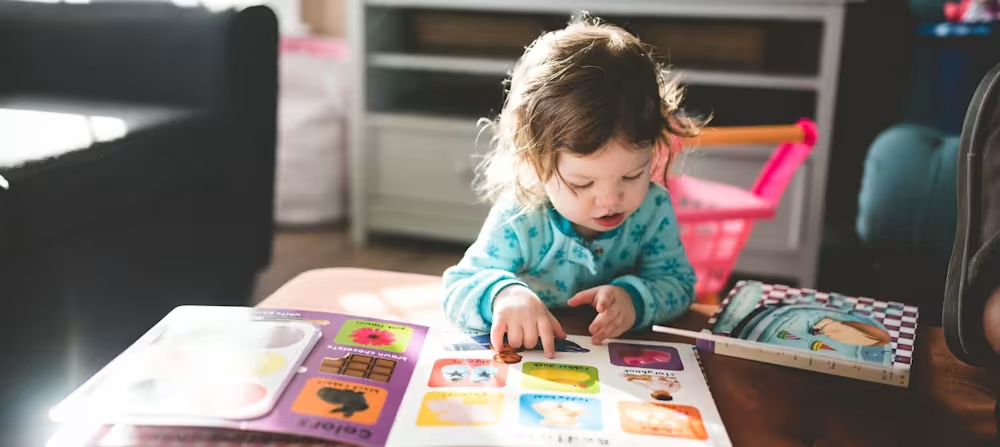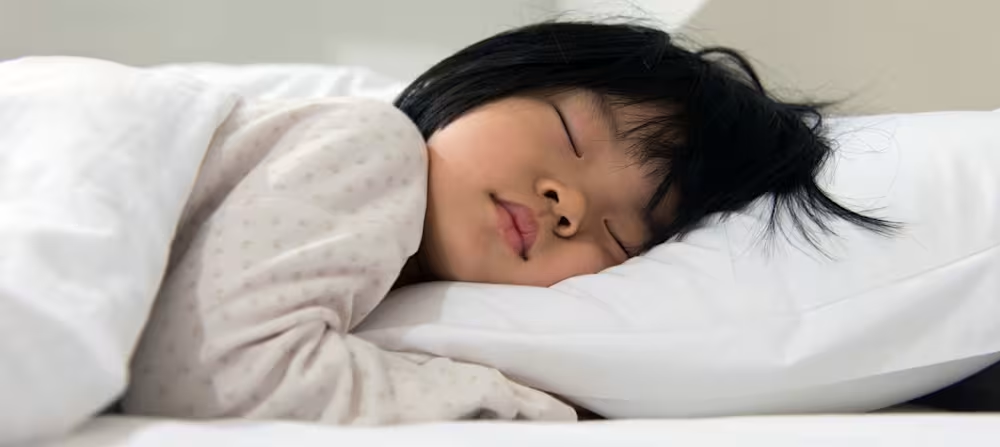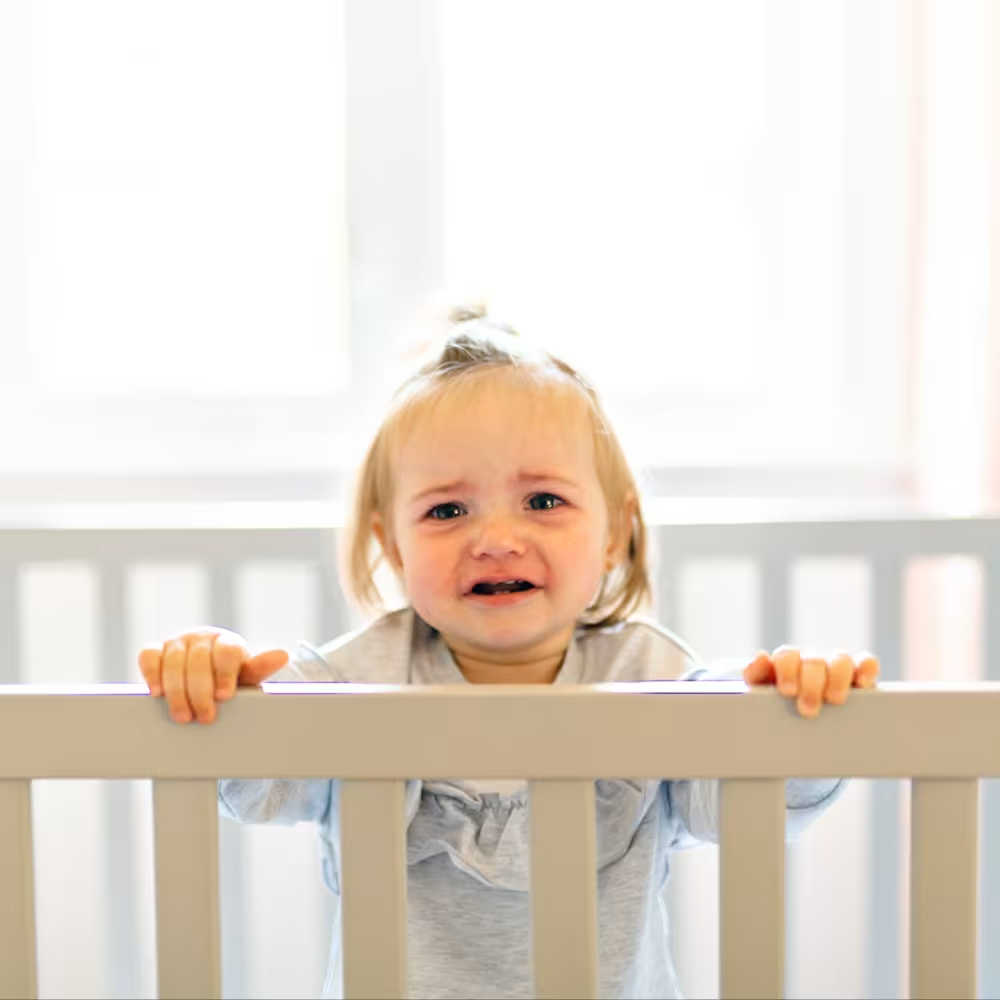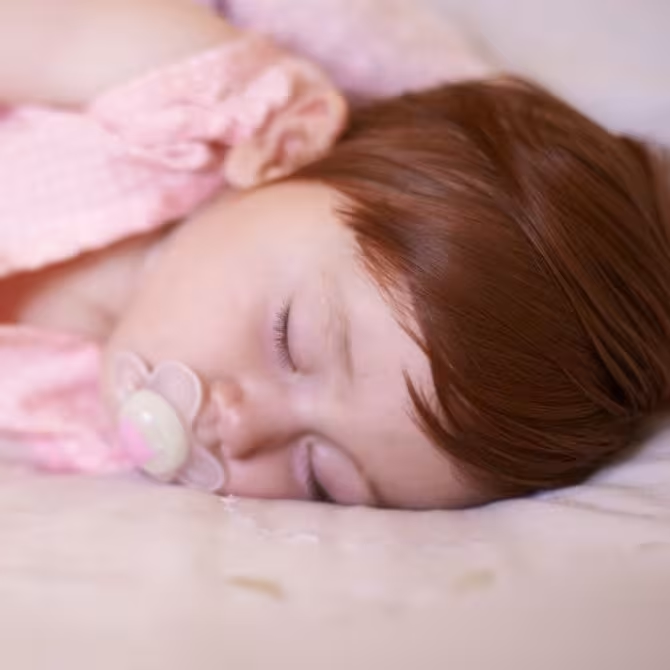Do children with autism have trouble sleeping?
Updated Oct 16, 2025

If your little one is experiencing sleep difficulties, you may be losing sleep too — both literally and figuratively — as you try to figure out how to ensure they get the shuteye they need. After all, sleep is essential for all children’s mental, emotional, and physical development. Autistic children may experience a range of challenges [] at bedtime and there’s not a “one-size-fits-all” approach to improving sleep.
Every child is unique and what works for one may not work for another. That said, in this article, we’ll walk you through types of sleep problems that are common in children on the autism spectrum, give you tips for helping your little one sleep better, and answer frequently asked questions about autism and sleep. Autism and sleep are both complex, nuanced topics and we recommend discussing the suggestions below with your child’s medical provider.
How frequently do children with autism experience sleep problems?
Not all kiddos with autism will experience sleep challenges. However, there is ample research [] from the last two decades that shows sleep difficulties are common in Autistic children. These studies typically show that children with autism experience sleep issues at a higher rate than neurotypical kids, ranging from 40% - 80% []. Poor sleep is also often one of the first concerns that parents report in younger kids who are later diagnosed with autism spectrum disorder (ASD).
A study involving 529 children aged 2 to 5 (303 with ASD, 63 with developmental delays, and 163 neurotypical children) found that, according to parent reports, 53% of children [] with ASD faced at least one frequent sleep challenge, compared to 32% of neurotypical children. The study found that little ones with autism commonly faced two types of sleep problems: sleep onset issues [] (trouble transitioning from wakefulness to sleep) and increased night awakenings. Another study [] involving 167 school-age children with ASD found 86% had at least one sleep problem almost every day.
When kiddos don’t sleep well, it can be difficult for the whole family. If your child is sleeping poorly, rest assured you’re not alone. While there isn’t usually a quick “fix” for most sleep challenges, below we’ll outline some of the ways you may be able to help your child get the rest they need.
Do Autistic children have sleep regressions?
All children may experience sleep regressions. A is a sudden, significant worsening of sleep patterns. If your child is going through new or different sleep challenges (if a child has been napping regularly and then has a period of resisting daytime sleep, for example), this could be considered a sleep regression.
Though periods of poor sleep are not uncommon throughout childhood, when new issues arise they can lead to overtiredness for kiddos and lots of frustration for caregivers. You may be clamoring to figure out why your child’s sleep has suddenly gotten worse.
Contrary to popular belief, there is no reliable evidence [] that all children go through sleep regressions at predetermined ages. They can happen at any age! However, there are a variety of factors that commonly lead to a shift in sleep patterns:
Neurodevelopmental maturation (the “”)
Sleep-onset associations
The need for a
Illness
Travel or other changes in routine
Physical or developmental milestones (,, , etc.)
Types of sleep problems common in Autistic children
All children may struggle with falling asleep and staying asleep at times. Autistic kids tend to have particular sleep issues such as:
Difficulty falling asleep: Children on the autism spectrum may have sleep-onset challenges. Anxiety [] is one factor that may make it difficult for a child to settle to sleep at night, especially if they have not been able to self-regulate during the day.
Frequent night waking: Children on the autism spectrum may have more restless sleep [] than neurotypical children.
Irregular waking patterns: Autistic children may be awake for long stretches [] during the night and/or wake very early in the morning.
Reasons for sleep problems in children with autism
There are a couple different ways sleep may be impacted for those with autism. Understanding how these challenges can play into your own kiddo’s routines and preferences may help you identify ways to improve sleep. Some common factors include:
Sensory sensitivities
Anxiety and stress
Atypical circadian rhythms
Medical conditions
Find more info below:
Sensory sensitivities
Sensory triggers can build over the day, especially if your child doesn’t have a way to self-regulate. This may be the case if they’re in a school or daycare environment, for example. In general, stress and anxiety stemming from sensory sensitivities can build up and impact bedtime.
There may also be sensory triggers in a child’s sleep space that may make it harder for them to settle to sleep and stay asleep. Some examples include certain smells (like laundry detergent), the feeling of pajamas, itchy tags and/or bedding, and any potential light coming from the outside or electronics in the room.
Anxiety and stress
Does it seem like your little one’s anxiety and stress are highest at bedtime? This may be especially true if they haven’t had a chance to self-regulate during the day after being in a school setting. Some kids with autism may feel societal pressure to “mask,” or hide some of their bigger feelings during the day. A buildup of anxiety and stress can be a catalyst for meltdowns, restless sleep, night wakings, etc.
Bedtime itself can bring anxiety too. Things like changes in routines, nighttime fears, bathtime stimulation, etc. may also impact sleep.
Atypical circadian rhythms
Circadian rhythms are 24-hour body clocks that regulate sleep and wake cycles. When disrupted, it can be difficult to sleep. Research suggests [] there may be a link between circadian rhythm disorders and ASD, related to factors such as low melatonin production [], genetics, and sensory sensitivities.
Medical conditions
Illnesses may make it more difficult for all children to sleep. Colds, ear infections, and the like can disrupt routines at bedtime which may lead to sleep onset challenges too.
Note that some Autistic children take medications with side effects [] that may make falling asleep harder. Poor sleep can also be related to various medical conditions. Consult with a healthcare provider if you think any factors are impacting your kiddo’s sleep.
Tips for helping Autistic children sleep better
Here’s an overview of some ways you may be able to help improve your kiddo’s sleep (with further explanation below). Keep in mind that autism and sleep are complex topics and every child has unique sleep needs — what may work for one may not be worth it for another and that’s OK! These suggestions should be tailored to your child and the advice of their healthcare provider, as well as your parenting preferences.
Tip #1: Identify triggers that may be impacting bedtime
Finding sources of bedtime anxiety and taking steps to remedy them can also help your child get the rest they need. For instance, is your child scared of the dark? Have there been changes in their routines that are causing stress? When looking for these sources of anxiety, think about where and when the anxiety is occurring and any steps you may be able to take to alleviate it. It may also be helpful to consider when your child seems the calmest and try to create similar conditions at bedtime. Adjusting your child’s bedtime routine and sleep space accordingly may help alleviate some anxiety around sleep.
Tip #2: Create a comfortable sleep environment that meets your child’s sensory needs
Considering your child’s specific preferences and sensitivities at bedtime may help promote better sleep — you know your child best! However, there are some general ideas to consider when creating an environment that’s conducive to sleep:
Keep the room quiet and dark (blackout shades may help)
Ensure your child’s sleep space is not too hot or cold
Consider using white noise or using a fan pointed away from the child (and leaving it on through the night)
Reduce sounds and smells [] coming from the rest of the house
Use bedding and pajamas that account for your child’s sensory preferences
Gradually remove objects [] from your child’s sleep space that may prevent them from sleeping comfortably (hard toys like cars, for example)
Tip #3: Try one small change at a time
Aiming to improve sleep through one small change at a time may be helpful for children with autism. Sleep challenges may be complex and interwoven so we suggest avoiding big, sweeping changes and instead try small improvements.
For example, if it seems as though your child is overstimulated after bathtime and finds it hard to then settle to sleep, consider moving baths to a different time of the day instead. In this scenario, we’d aim to communicate the schedule change [] clearly and, if possible, make a gradual transition with lots of support to avoid causing anxiety.
It can feel like you’re moving slowly, especially if you’re eager to get everyone sleeping better in the house. But little changes can have a big impact too! A series of small tweaks over time may help make bedtime more manageable for the whole family.
Tip #4: Use visual supports
Using visual supports, such as a chart with pictures of your little one’s specific bedtime routine, can help communicate your expectations around sleep. Visual aids that relate to your child’s day can be simple for younger children (a picture of a toothbrush, for example) or more of a checklist for older children to use that may encourage a little more independence.
Tip #5: Create a consistent bedtime routine
All children can benefit from knowing what to expect at bedtime. Doing the same steps in order every night before going to sleep may be especially beneficial for Autistic children in order to decrease anxiety around bedtime and address any unique sleep needs. Consistency is key! When creating a bedtime routine [] for your child, aim to include calm activities like reading a book.
Many benefit from avoiding stimulating activities at bedtime like screen time, however, other parents with Autistic kids may actually use it as a tool to help them wind down. Consider what works best for your family and keep the routine a predictable pattern each night.
Tip #6: Be flexible and adapt as necessary
Keep in mind that it can take a few nights (or possibly weeks) [] to see a change in your child’s sleep patterns and/or quality, even after making adjustments that seem more conducive to their unique needs. Sleep is one of the most common challenges parents face and it can be really frustrating to navigate!
It’s also important for caregivers to set realistic expectations and rest assured they’re making adjustments to the best of their abilities. Being patient, flexible, and open to making more small, gradual improvements to your child’s sleep in the future can be helpful.
Instead of focusing on what isn’t happening when it comes to your child’s sleep, perhaps reframe and celebrate progress along the journey. For instance, “wins” may look like:
Getting settled for sleep a few minutes faster
Your child choosing between two sets of pajamas for the first time
Your kiddo moving onto the next step of the bedtime routine with less resistance
A child showing an interest in their new visual bedtime routine
When to seek professional help for sleep
Sleep challenges can be difficult for children and families, as sleep issues can also influence [] behavior, attention problems, parental stress, and more. If you feel that your child is not getting the rest that they need, consider consulting with their medical team. Your child’s doctor may be able to provide personalized advice and resources to ensure they get the sleep they need. If you’re looking for extra support with sleep, Huckleberry’s Premium subscription offers personalized plans crafted by our sleep experts to suit your child’s needs and your family’s preferences. While children with ASD may face additional sleep challenges, our recommended behavioral interventions are designed to provide the guidance and framework for better sleep.
Takeaway
Research shows that children with autism commonly face sleep difficulties. One study of 529 children based on parental reporting showed that 53% of children [] between 2 - 5 with ASD experienced at least one frequent sleep challenge.
Autistic children may have sleep issues like difficulty falling asleep and staying asleep, waking frequently overnight, and rising early in the morning. While there’s not a “cure” for poor sleep, caregivers can consider taking small steps to help their child get the rest they need.
Sleep is complicated and complex. For Autistic kids, sleep problems may stem from sensory sensitivities, atypical circadian rhythms, anxiety and stress, and/or other medical conditions.
Following a consistent bedtime routine, setting up a comfortable sleep space, identifying triggers before bedtime, and being patient and flexible may help your child at bedtime.
Share article:
Note: The content on this site is for informational purposes only and should not replace medical advice from your doctor, pediatrician, or medical professional. If you have questions or concerns, you should contact a medical professional.
16 Sources
Share article:





